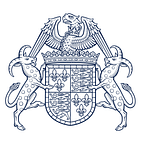Spotlight on: energy
Our new Spotlight on blog features Randolph Brazier (2012) on how to improve the energy system in the UK.
My interest in energy began in my undergraduate degree in Electrical Engineering and Physics at the University of Adelaide in South Australia. I had the opportunity to work with various energy companies as a part of the degree, including the burgeoning wind farm industry.
After graduating, I worked on renewables and electricity utility projects across the UK, Europe and Australia. This included a move to Cambridge and St John’s College in 2012 to complete my M.Phil in Engineering for Sustainable Development. My work at John’s opened my eyes to wider energy challenges and the need for strategic oversight, and ultimately led to my current role as Head of Innovation & Development at the Energy Networks Association (ENA).
There is currently a shift underway in the energy sector towards decarbonisation, decentralisation and digitisation. Arguably, it is the biggest shift since large scale electrification in the 1880’s. It is being driven, primarily, by the ‘Energy Trilemma’: the need to transition to a sustainable low carbon energy future while maintaining energy security and ensuring affordability for all.
The electricity system was designed to shift power in one direction: from large fossil fuel (coal and gas) powered generators, typically far away from the population, to homes and businesses. This is now changing dramatically:
- large fossil fuel generators are being shut down, and the future of nuclear power is somewhat unclear,
- electricity is being produced by renewable generators such a solar panels and wind turbines,
- battery storage is being connected to homes and businesses, with the ability to consume or produce electricity, and
- electric vehicles (EVs) are becoming more popular.
Electricity now flows in all directions and there has been an increase from tens of producers (centralisation) to tens of thousands of producers (decentralisation). This rate of change means the future of energy is uncertain and we’re only just starting to think about other challenges looming on the horizon.
Climate change is one of the biggest challenges we face and, as evidenced by the 2015 Paris Climate Agreement, the world has agreed to act. The UK Government has ratified this commitment and enshrined the Climate Change Act into law. Decarbonisation of energy, and in particular electricity generation, heat and transportation are all critical components of this commitment.
For the electricity networks to meet these challenges in a cost-effective way, we need to utilise innovative technologies and move towards a smart grid.
This transition will open up a range of opportunities for energy producers, utilities, businesses, users of energy and the UK in general. The technologies and innovation underpinning the smart grid will enable:
- localised generation and consumption of energy,
- new commercial models, businesses and job creation,
- greater control over energy bills, through smart meters and smart appliances,
- businesses to uncover new revenue streams by providing services from their on-site generation and storage, and
- increased investment in the UK energy sector and export of smart technology and services.
This transition is already underway. The UK’s Electricity Networks are at the centre of this transition and, through the ENA, are working hard to ensure this happens.
The Open Networks Project is a major initiative which will enable the UK’s local electricity networks to evolve from their traditional ‘static’ role of delivering electricity and form the basis of the smart grid. Ultimately, the best way to design the future system is ‘learning by doing.’ To achieve this, electricity networks are trialling and testing new technologies, processes, procedures and business models.
Given the scale and rate of change we are experiencing, there is a lot of uncertainty as to what the future energy system will look like. ENA’s Open Networks Project and the many innovation trials we are running will minimise this uncertainty and build evidence for a smart grid that maximises benefits to customers. We need to continue this process going forward and ensure we properly understand new challenges as well as explore emerging opportunities such as Artificial Intelligence and peer-to-peer energy trading.
The ‘Spotlight on’ blog gives Johnians a platform to share their insights on their field of expertise. If you would like to write for our Spotlight on blog, please get in touch with us at development@joh.cam.ac.uk.
